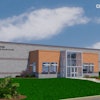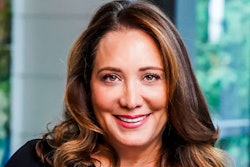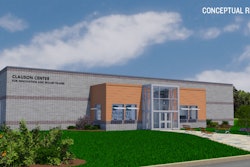A new program at Rockland Community College in New York provides training courses for middle skills-level jobs that require a high school education but not necessarily a college degree.
Career Skills Academy, previously known as Middle Skills Academy, has launched four pilot classes: IT support professional, social media branding and marketing for entrepreneurs, CAD drafter or 3D modeler, and gas pipeline operations.
“We piloted, in January, a couple of courses in these sort of short-term credential of opportunities so that we could give people in the community a chance to learn, earn and sort of improve the communities in which they live,” said RCC president Dr. Michael Baston.
The programs last between two and 16 weeks and are taught by industry experts. By the end of the program, graduates gain workforce certifications that qualify them for industry jobs within the Rockland county area in New York. For those specific jobs, typical starting salaries range from $45,000-$55,000.
These courses were designed to help people who are restricted on time to complete a two-year degree program or who cannot afford to leave their current job but need to earn a more sustainable career in a faster time frame.
The programs began with a total of 40 students between the ages of 18 and 45, and nearly half of them have received job placements in their prospective fields, according to RCC.
The majority of students who graduated from the pilot courses were previously unemployed.
“Career Skills Academy was a way to reach a greater audience and change the way we offer higher education to the greater community surrounding the college,” said Dr. Beth Coyle, vice president of operations and strategic initiatives at RCC, which is part of the State University of New York (SUNY) system.
After talking to students, RCC was able to determine an ideal length of the programs, as well as the time of day to offer them. The scheduled times varied for each program and some offered both day and evening availabilities. Additionally, the social media course was all online.
“We don’t want a student who is working full-time or caring for a parent or a child to have to jeopardize the work that they are doing so they can further themselves,” said Coyle
 Dr. Michael Baston
Dr. Michael Baston
Schools typically set a schedule “and we just know the students are going to come,” she said. “But we really need to accommodate the students. It’s all about responding to their needs rather than assuming what they need.”
RCC created three additional programs for this fall, including professional bookkeeping through QuickBooks, professional medical call center representative and assistant kosher baker and bread maker.
In terms of future growth, RCC is also looking to expand into the health care areas in the future.
They also want to spread the word to more people about the academy being a viable option for potential students.
“In working with our partners and businesses in the industry, we will continue to determine which things to offer that will enable people to go right into the world of work and make a family-supporting wage,” said Baston.
The course costs range from $2,750 to $3,999. For those who need financial assistance, a number of grant programs are offered.
“We are in need of getting the federal government to help us in terms of making short-term Pell grants eligible for programs that lift people out of poverty and into opportunity,” said Baston.
RCC reaches out to community members and partners with the Rockland Career Center, which is housed on campus, to ensure that everyone is given the opportunity for an education.
“Sometimes families decide that their young person is not college material,” said Baston. “What we are trying to say through our Career Skills Academy is that we are a path to college, maybe a nontraditional path but a path, nonetheless. Your young person is college material, they just might not be ready for every program that colleges offer.”
Graduating from any of the offered courses also helps those looking to eventually transfer into a degree-seeking program.
RCC wants to ensure that academy students feel supported during the entire process, said Coyle.
“We want students to know that it is not going to be as scary as they think it is to return to school because we are going to help them,” she said . “And we are going to help them succeed. A lot of times it comes down to a confidence issue, and we want them to realize that they can do these programs and they can land great jobs.”
Sarah Wood can be reached at [email protected].
This article first appeared in Diverse: Issues In Higher Education.









